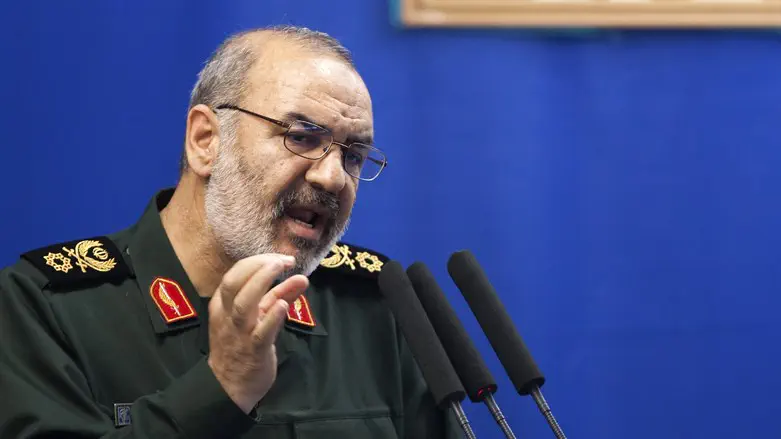
Major General Hossein Salami, commander of the Islamic Revolution Guards Corps (IRGC), warned on Sunday that Israel “will taste the bitterness of Tehran’s revenge for its vicious acts”, PressTV reported.
He warned that Zionists cannot escape Iran’s retaliation and “they will see when, where and how it will occur.”
General Salami said that the revenge would be different than what has been seen in the past.
“Israel and its allies should not think that they will hit and run away, but they should know that they will be hit and cannot run away,” he said, according to PressTV, adding, “We are sure we will finish this story by the grace of God.”
Iran has vowed revenge against Israel for the elimination of Hamas political bureau chief Ismail Haniyeh in Tehran, on which Israel has not commented.
On Saturday, the IRGC's Brigadier General Mohammad Reza Naqdi emphasized that the Iranian response is "certain," but added that it will be carried out at a time when Iran deems appropriate.
Criticizing the US, who he claimed is Israel's "sole backer," he added, "The US is complicit in the atrocities in Gaza."
Three senior Iranian officials recently told Reuters that Iran could delay or cancel its planned attack against Israel if ceasefire talks between Israel and Hamas are successful.
Later, however, White House national security spokesperson John Kirby warned in an interview with Israeli media that the danger of an Iranian attack on Israel remains even after Israel foiled a massive attack by Hezbollah.
“We believe that they are still postured and poised to launch an attack should they want to do that, which is why we have that enhanced force posture in the region,” Kirby told Channel 12 News.
Pentagon spokesperson Patrick Ryder made similar comments last Tuesday, telling reporters that there is still a threat of an Iranian attack against Israel.
Asked whether there has been any change about the perceived threat level in the Middle East, Ryder replied, “Iran has indicated that it intends to retaliate, so we will continue to take that threat seriously, and I'll just leave it there.”
He was also asked if the Pentagon has seen any changes that would have changed in the past 10 days or so, and replied, “I think that we need to continue to take that threat seriously and be prepared. Again. I'm not going to speculate or get into potential or hypotheticals, rather, in terms of when and if they may attack other than the fact that they've said publicly that they intend to retaliate.”
“And so we will continue to take that seriously,” added Ryder.
